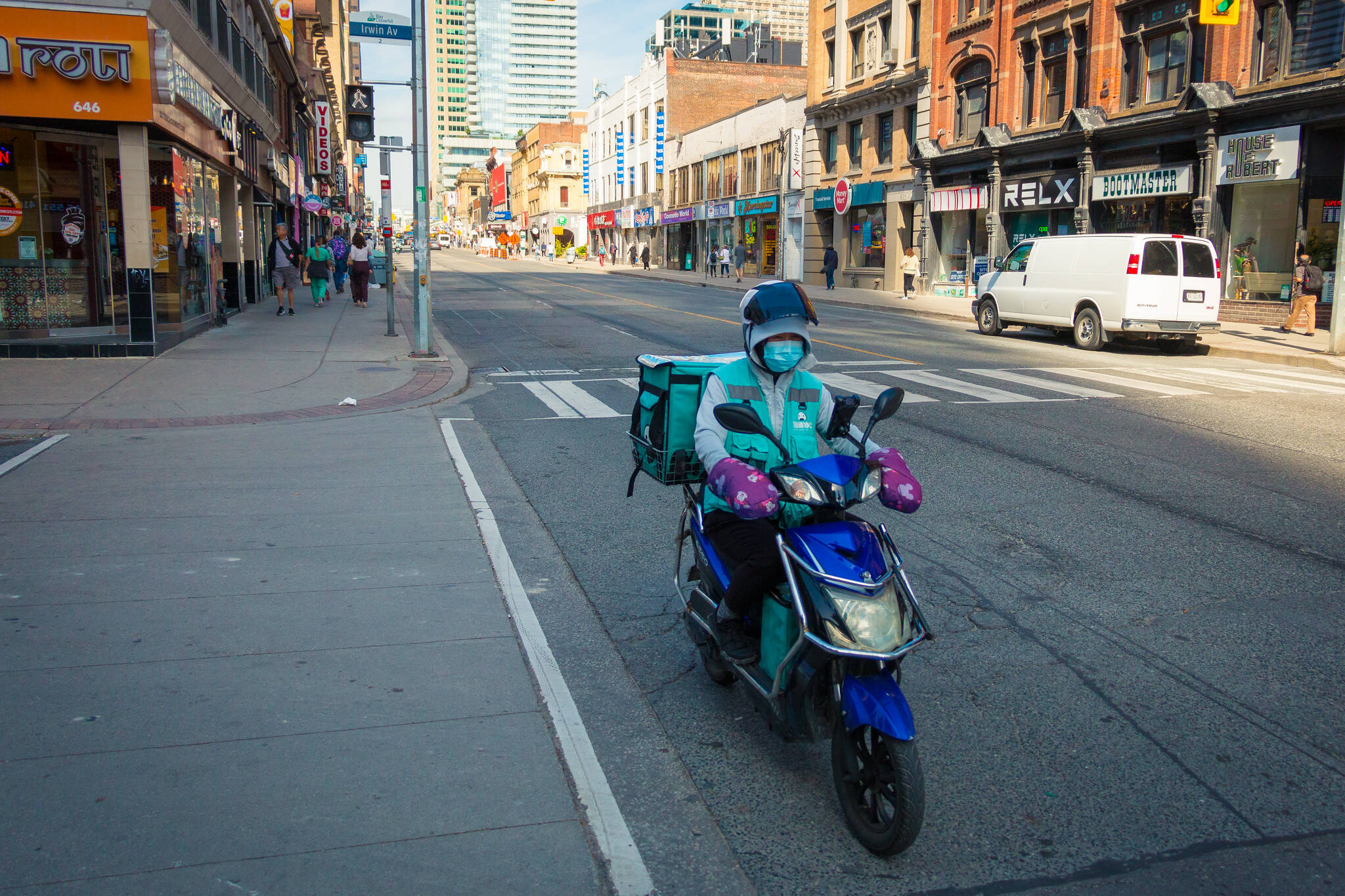
Toronto food delivery bikes and scooters could be forced to get licence plates
With the rise in popularity of food delivery services, more and more people have started to use motorized bikes and scooters to make deliveries and earn some additional income.
However, many pedestrians in Toronto have grown frustrated over the number of people who choose to use these vehicles on sidewalks instead of designated bike lanes.
Although not all of these offenders are delivery couriers, workers who use these types of vehicles to sustain Toronto's appetite for delivery might have to obtain ID plates if a motion proposed by one city councillor passes.
Councillor Diane Saxe represents Ward 11 University - Rosedale and is leading a motion that asks city council to require commercial riders of these motorized vehicles to have identifiers such as ID plates, so that police and bylaw officers can better track down those who violate the rules.
"A minority of (motorized) couriers create safety hazards for pedestrians and other vulnerable road users by flagrantly ignoring traffic rules, travelling at high speeds, and riding on sidewalks," the motion reads.
The proposal includes motorized scooters, e-bikes, or essentially any vehicle that has a motor and allows delivery couriers to travel at a fast speed.
Saxe's motion is being sent to the Infrastructure and Environment Committee later this month, but many advocates have already started criticizing the proposal.
What a dumb idea. Yes these people should be walking the bike on the sidewalk!However penalizing them or their companies is more hassle then it's worth. The company will just pass costs on to consumers so don't think that"make the company pay"is a solution https://t.co/Ih99hiON4B
— Julia Pak - App Dev 🇨🇦Canadian🇨🇦 🍁Toronto🍁 (@julzpak) April 11, 2023
Alison Stewart, acting co-executive director of Cycle Toronto, spoke to CBC about the motion, and argued that licencing doesn't necessarily always correct people's behaviour.
Targeting one kind of road user over all others is discriminatory & harmful. By shifting focus on food couriers over 🚗, which is are all licensed & result in fatalities & serious injuries, we are just making it more dangerous for people that need better protection.
— Ali = Alison Stewart (@AlisonVStewart) April 11, 2023
Brice Sopher, vice president of Gigs Workers United also spoke to CBC and tweeted that the proposed changes would affect the "most vulnerable members of our community."
I spoke to CBC why the motion to put a license plate on courier ebikes is a bad idea. These are among the most vulnerable members of our community and the real villain is the apps like Uber. Plus @DianneSaxe keeps bringing motions like this in without speaking to stakeholders https://t.co/oc03Ae2w8h
— Brice Sopher (@this_is_walmer) April 11, 2023
However, Saxe's motion maintains that bearing clear identification may result in less hazardous behaviour.
"Attempts to enforce traffic rules against such couriers has not been effective in discouraging this behaviour, partly because neither the couriers nor their vehicles bear clear identification. Accordingly, it is difficult to identify and locate offenders," the motion continues.
"This creates a culture of impunity, which further encourages illegal and hazardous behaviour."
Latest Videos
Latest Videos
Join the conversation Load comments







